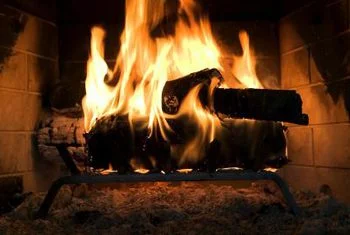In so many countries of the world today charcoal(wood) is widely used for different purposes.
Charcoal is a very important substance used for so many life activities among of which are fuel for cooking & industries, cosmetics, manufacture of products(e.g tyre), generation of heat and so on.
Research had it that not fewer than 80% of urban areas in Kenyans uses charcoal as fuel for cooking. It's cheap and easy to get.
Despite it support to mankind I can say, the harmful effect of the use of charcoal is gradually or I use the word progressively degrading the ecosystem.
Inasmuch as charcoal is obtained from wood, deforestation is now one of the effect it use. 10kg of wood is to be burnt before just a kilogram(1kg) of charcoal can be derived, by this daily activities years in & years out carbon dioxide(CO2) continually being emitted from such operations increases the greenhouse effect, more heat is captured by the atmosphere thereby increasing the global temperature also called global warming. In other words, the earth's temperature continues to increase and becoming in conducive.
In line with the goal7 of the UNITED NATIONS’ SUSTAINABLE DEVELOPMENT GOALS, Samsung technology company launched her first phase of a project at Mombasa Country that was last year with a sole aim of creating affordable and clean energy by 2030 in the same vein reducing the demand for charcoal in the country.
Here is the phase 2 of the ethanol - stove project in launched at Kakuma refugee camp. In the same mission to lessen the release of carbon dioxide in the nation by greater than 500,000 tonnes in a sequence of five years.
12,000 ethanol stoves has been supplied to Kakuma refugee camp with a price slash down from Ksh 4,000 per stove to ksh 1995.
The care of the health our environment / ecosystem is not a single mans' job, we are to embrace this vision, take care of the environment and support growth, development and positivity.
Preventing the future side effects of carbon and other harmful substances.
Charcoal is a very important substance used for so many life activities among of which are fuel for cooking & industries, cosmetics, manufacture of products(e.g tyre), generation of heat and so on.
Research had it that not fewer than 80% of urban areas in Kenyans uses charcoal as fuel for cooking. It's cheap and easy to get.
Despite it support to mankind I can say, the harmful effect of the use of charcoal is gradually or I use the word progressively degrading the ecosystem.
Inasmuch as charcoal is obtained from wood, deforestation is now one of the effect it use. 10kg of wood is to be burnt before just a kilogram(1kg) of charcoal can be derived, by this daily activities years in & years out carbon dioxide(CO2) continually being emitted from such operations increases the greenhouse effect, more heat is captured by the atmosphere thereby increasing the global temperature also called global warming. In other words, the earth's temperature continues to increase and becoming in conducive.
 |
| Pic: wood charcoal |
In line with the goal7 of the UNITED NATIONS’ SUSTAINABLE DEVELOPMENT GOALS, Samsung technology company launched her first phase of a project at Mombasa Country that was last year with a sole aim of creating affordable and clean energy by 2030 in the same vein reducing the demand for charcoal in the country.
Here is the phase 2 of the ethanol - stove project in launched at Kakuma refugee camp. In the same mission to lessen the release of carbon dioxide in the nation by greater than 500,000 tonnes in a sequence of five years.
12,000 ethanol stoves has been supplied to Kakuma refugee camp with a price slash down from Ksh 4,000 per stove to ksh 1995.
 |
| Pic: Illustrating ethanol stove |
Why Ethanol Stoves Instead Of Charcoal ?
- Ethanol burnings does not pollute the air.
- Ethanol provides more high heat flux no release of soot or smoke.
- Gives enough heat for fast cooking.
- Doesn't spread when spilled.
The care of the health our environment / ecosystem is not a single mans' job, we are to embrace this vision, take care of the environment and support growth, development and positivity.
Preventing the future side effects of carbon and other harmful substances.








0 comment: